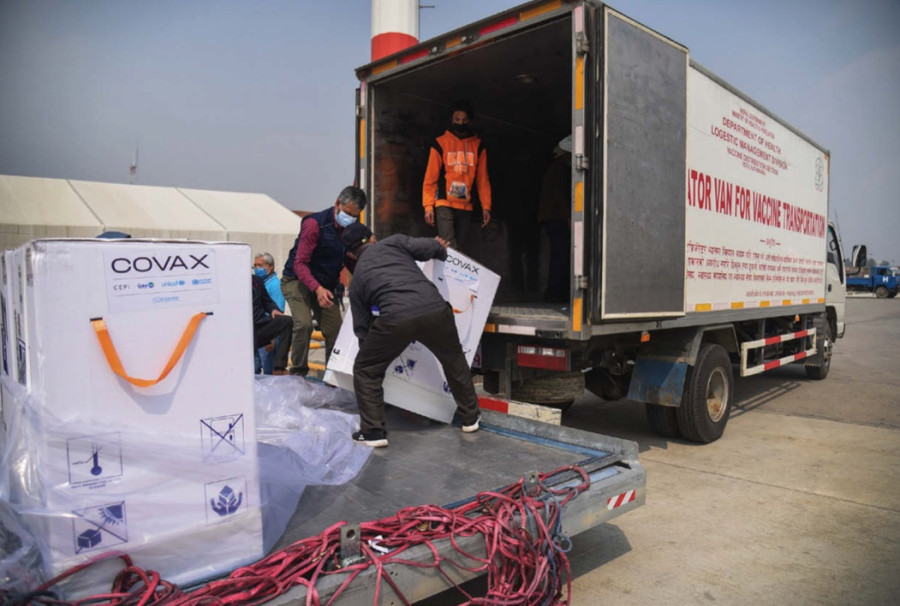Health
People of Limi and Yari in Humla deprived of immunisation against Covid-19
Public health experts say the government has failed to ensure equal health care rights to all people.
Arjun Poudel
At a time when people above 65 years old from across the country are receiving Covid-19 vaccine, residents of Limi Valley and Yari village of Namkha Rural Municipality in Humla have been deprived of the immunisation service.
Both villages, adjoining Tibet of China, remain cut off from the rest of the district in the winter.
“We could run neither the first phase of immunisation nor the second in Limi Valley and Yari,” Bishnu Bahadur Lama, chair of Namkha Rural Municipality, told the Post. “Over 200 people in each village are eligible to get the vaccine there.”
The first phase of immunisation did not cover the rural municipality and the second phase has been planned in only two immunisation centres.
Limi Valley and Yari village are over five-day walk from the district headquarters Simikot. People have to cross a 5,100 metre peak, which remains heavily covered with snow at this time of the year, to reach those villages, according to Lama.
“We have requested the provincial government for help to send the vaccines by helicopter, but they have not responded yet,” added Lama. “Neither the provincial government nor the federal government has paid attention to our problem.”
Public health experts say that failure to immunise people residing in remote villages like Limi Valley and Yari village shows the government’s failure to ensure equal health care rights to people of all places throughout the country.
“This is neither a new problem nor are the authorities concerned unaware of it,” Dr Baburam Marasini, former director at the Epidemiology and Disease Control Division, told the Post. “People of such remote villages are always deprived of the basic services and the change in political system in our country did not make any difference to them.”
Prime Minister KP Sharma Oli and his Cabinet ministers have been using helicopters spending hundreds of thousands of rupees from the state coffers to inaugurate development projects and to attend party programmes in various parts of the country.
“It will not be a big deal for the authorities to send vaccines by helicopter to remote places,” said Marasini. “But what can be done when authorities do not have the will to ensure the rights of the people? It seems the government is not serious about controlling the infections and saving lives.”
Meanwhile, the Ministry of Health and Population on Sunday said that no adverse event was recorded until the evening of the first day of the second phase of immunisation against Covid-19.
Prime Minister KP Sharma Oli had inaugurated the second phase of the nationwide vaccination campaign by taking the jab at the Tribhuvan University Teaching Hospital.
Dr Dibya Singh Shah, the prime minister's personal physician who is also the dean of the Institute of Medicine, confirmed that the prime minister took the jab.
The new guidelines say the Covid-19 shot can be taken three months after kidney transplantation, Shah told the Post. “After evaluation of the risks and benefits, we have decided to immunise the prime minister.”
Prime Minister Oli, who turned 70 last month, had undergone a second kidney transplant surgery in March last year.
After inauguration by the prime minister, the immunisation programme started from around 6,000 centres, Dr Jhalak Sharma, chief of Child Health Section of the Family Welfare Division under the Department of Health Services, told the Post.
“No adverse incident was recorded until the evening.”
The government had initially planned to inoculate people above 55 in the second phase of vaccination, but with 1.5 million doses of the vaccine in hand, only those above the age of 65 are being inoculated.
Of the 1.5 million vaccine doses available, about 500,000 are what remain from the one million doses that India provided in January in grant and another million is what the Serum Institute of India has delivered of the two million Nepal bought last month.
Authorities expect the remaining million doses, bought at $4 per dose, to arrive within a week.
Nepal also received 348,000 doses of Covid-19 vaccines provided under the WHO’s COVAX facility on Sunday.
Besides those coming from the WHO on Sunday and the Serum Institute of India within a week, China has committed to provide 800,000 doses of the BBIBP-CorV vaccine developed by the Beijing Institute of Biological Products Co Ltd in China under Sinopharm and officials hope to receive them within the next few days.
According to the Health Ministry, President Bidya Devi Bhandari, Vice President Nanda Bahadur Pun and office bearers of various constitutional bodies will also be inoculated in the second phase.
Nepal launched its first phase of vaccination on January 27 with one million doses of Covishield provided by India under grant.
Though the government had planned to inoculate 430,000 people including frontline health workers, only 184,857 people received the vaccine in the first round. The Health Ministry then inoculated journalists, staff of diplomatic missions, those serving in financial institutions and elected representatives of local and provincial governments, among others.
The government needs to vaccinate 72 percent of the country’s 30 million population as vaccines against Covid-19 are yet to be trialled on children under 14 years of age.




 13.12°C Kathmandu
13.12°C Kathmandu















